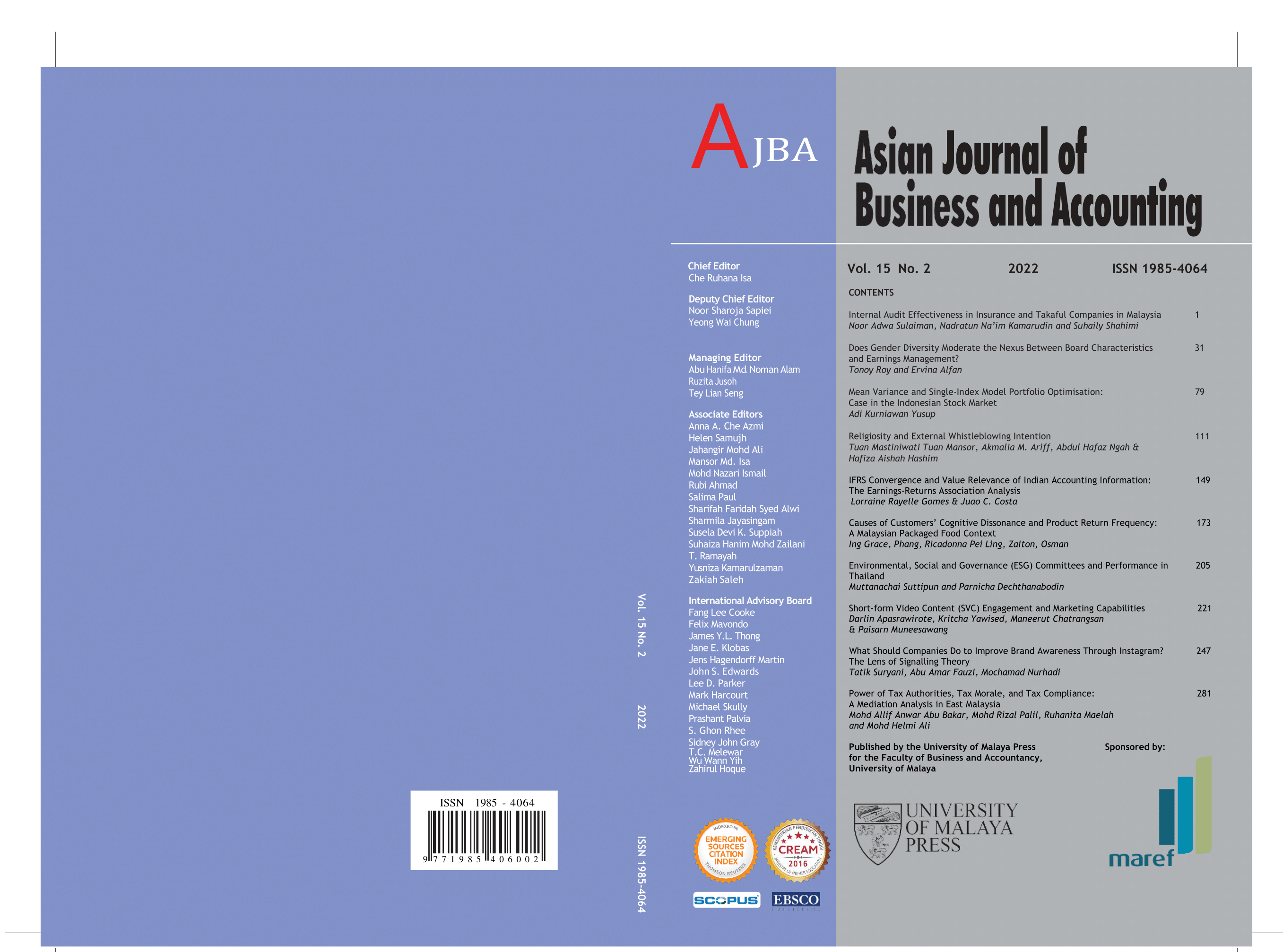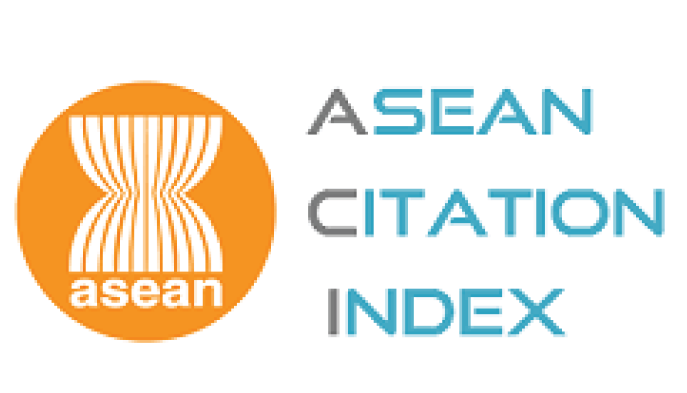Environmental, Social and Governance (ESG) Committees and Performance in Thailand
DOI:
https://doi.org/10.22452/ajba.vol15no2.7Keywords:
ESG committee, ESG performance, ThailandAbstract
Manuscript type: Research paper
Research aims: The study aims to investigate the extent and level of
environmental, social and governance (ESG) performance of listed
companies in Thailand, and test for the relationship between ESG
committees and performance.
Design/methodology/approach: Using the top 100 Thai listed companies
(364 firm-year observations) from the Stock Exchange of Thailand (SET),
the corporate annual reports during 2018 to 2021 are used to collect ESG
board committee characteristics, while ESG performance is collected
and measured by ESG scores from S&P Capital IQ and Capital IQ
Pro databases. Descriptive analysis, correlation matrix, and multiple
regression are used to analyse the data.
Research findings: The average performance score of ESG in Thailand
is 29.52. In addition, there was an increase of ESG performance by the
top 100 firms in Thailand during the period under study. There is a
significantly positive relationship between independent ESG committees
and ESG performance, while dual positions between top management and
ESG committees is negatively correlated with ESG performance.
Theoretical contribution/originality: The findings of the relationship
between ESG committees and performance demonstrates that agency
theory can be used to explain the factors influencing ESG performance
by Thai listed companies.








